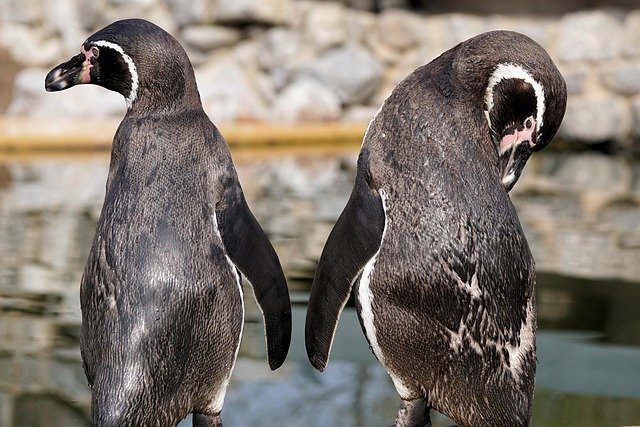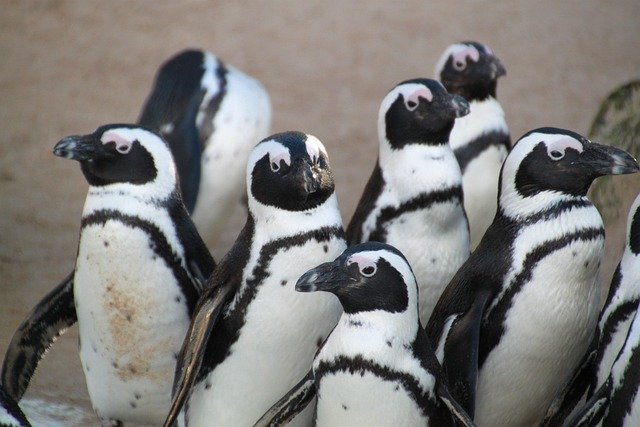**Title: "The Climate Crisis and Its Impact on Penguin Populations: A Deep Dive into the

The Climate Crisis and Its Impact on Penguin Populations: A Deep Dive
The climate crisis is one of the most pressing challenges of our time, affecting ecosystems and species across the globe. Among those impacted are the iconic penguins, whose populations are facing significant threats due to changing environmental conditions. In this post, we will explore how climate change is affecting penguin populations, the specific challenges they face, and what can be done to mitigate these impacts.
Understanding Penguin Habitats
Penguins are primarily found in the Southern Hemisphere, with the majority of species residing in and around Antarctica. These regions are characterized by extreme cold and ice-covered landscapes, which are crucial for the survival of penguin species. The most well-known species include the Emperor Penguin, the King Penguin, and the Adélie Penguin, each adapted to their unique habitats.
The Effects of Climate Change on Penguins
1. Melting Ice and Habitat Loss
One of the most immediate impacts of climate change is the melting of sea ice and glaciers. For many penguin species, ice is a critical habitat for breeding and feeding. As ice melts, the available breeding grounds shrink, leading to decreased reproductive success. For example, the Emperor Penguin relies on stable sea ice for nesting, and recent studies have shown a decline in their breeding success due to earlier melting periods.
2. Changes in Food Availability
Climate change also affects the availability of prey species, such as krill and fish, that penguins depend on for food. Warmer ocean temperatures can disrupt marine ecosystems, leading to shifts in the distribution of these prey species. This can result in reduced foraging success for penguins, ultimately affecting their survival and reproductive rates.
3. Increased Competition and Predation
As penguins face habitat loss and food scarcity, they may also encounter increased competition from other species. For instance, as temperatures rise, some fish species may migrate to cooler waters, leading to increased competition among penguin species and other seabirds. Additionally, changing ecosystems may allow for an increase in predatory species, further threatening penguin populations.
4. Extreme Weather Events
Climate change is linked to an increase in extreme weather events, such as storms and heatwaves. These events can directly affect penguin colonies, leading to increased mortality rates. For example, heavy rainfall can lead to flooding of nesting sites, while heatwaves can cause stress and dehydration among penguin chicks.
Case Studies: Penguin Species at Risk
Emperor Penguins
The Emperor Penguin is particularly vulnerable to climate change. Research indicates that if current warming trends continue, the species could face a dramatic decline by the end of the century. The loss of stable ice platforms for breeding is a critical concern, as is the availability of krill, which are essential to their diet.
Adélie Penguins
Adélie Penguins are also feeling the effects of climate change. As ice conditions change, their breeding success may decline. In some regions, populations have already seen significant decreases, attributed to shifts in sea ice extent and the availability of food.
What Can Be Done?
1. Conservation Efforts
Conservation organizations and researchers are working to monitor penguin populations and their habitats. Protecting critical breeding grounds and ensuring sustainable fishing practices can help mitigate some of the impacts of climate change.
2. Climate Action
Addressing the root causes of climate change is essential for the long-term survival of penguin populations. Global efforts to reduce greenhouse gas emissions and promote renewable energy sources are critical to slowing the pace of climate change.
3. Public Awareness and Education
Raising awareness about the plight of penguins and the broader impacts of climate change can foster public support for conservation initiatives. Engaging communities and promoting responsible tourism can also help protect penguin habitats.
Conclusion
The climate crisis poses a significant threat to penguin populations around the world. As their habitats change and food sources dwindle, these remarkable birds face an uncertain future. By understanding the challenges they face and taking action to mitigate climate change, we can help ensure that future generations will continue to marvel at these incredible creatures.
By working together, we can make a difference for penguins and the ecosystems they inhabit. Let's take action now to protect our planet and its inhabitants!

Upvoted! Thank you for supporting witness @jswit.